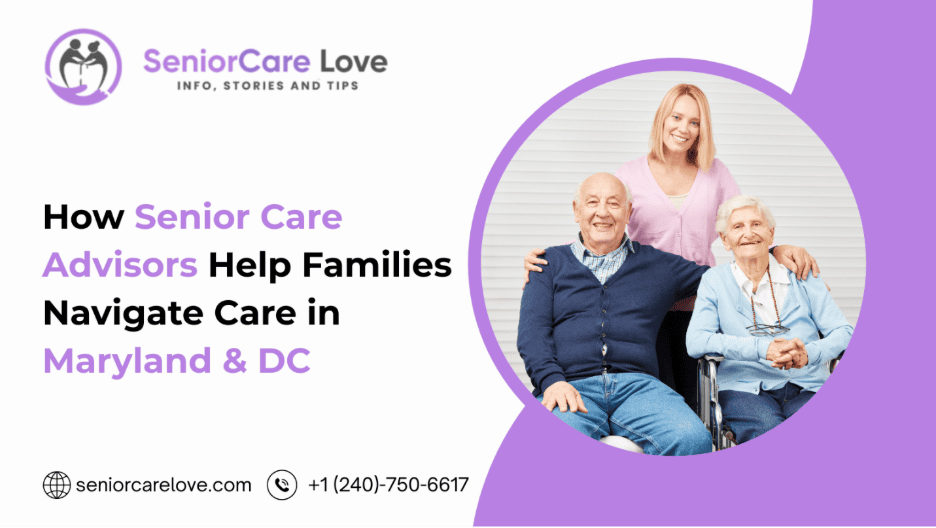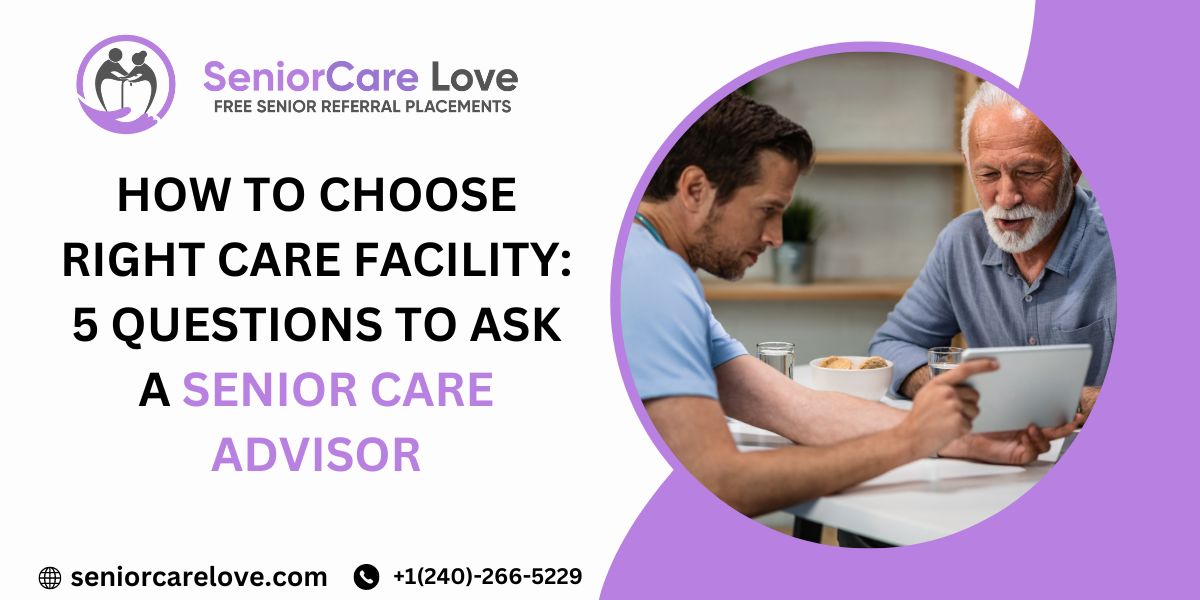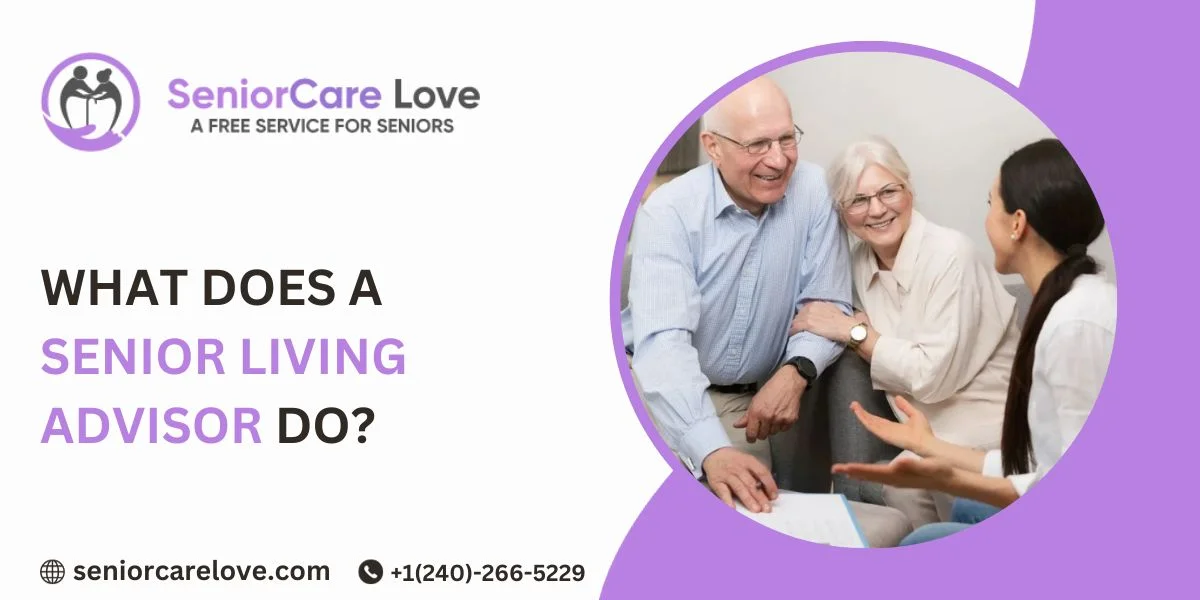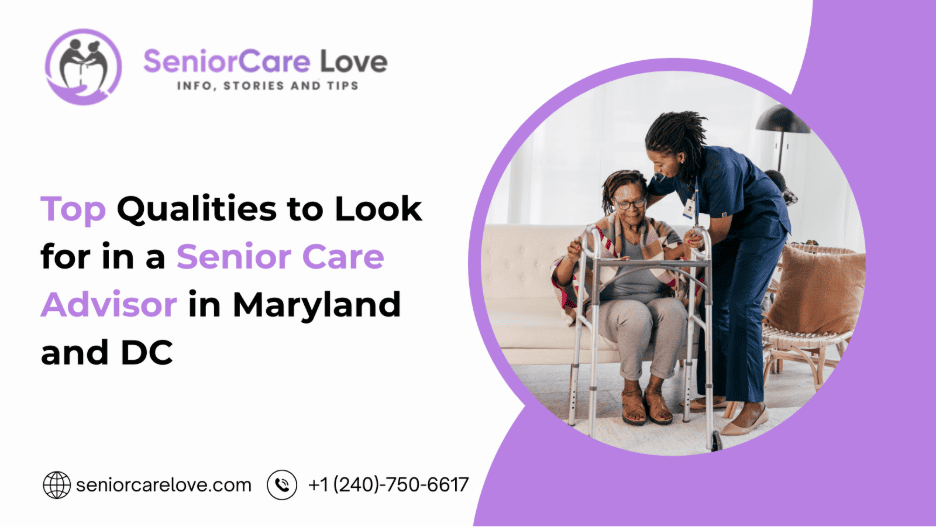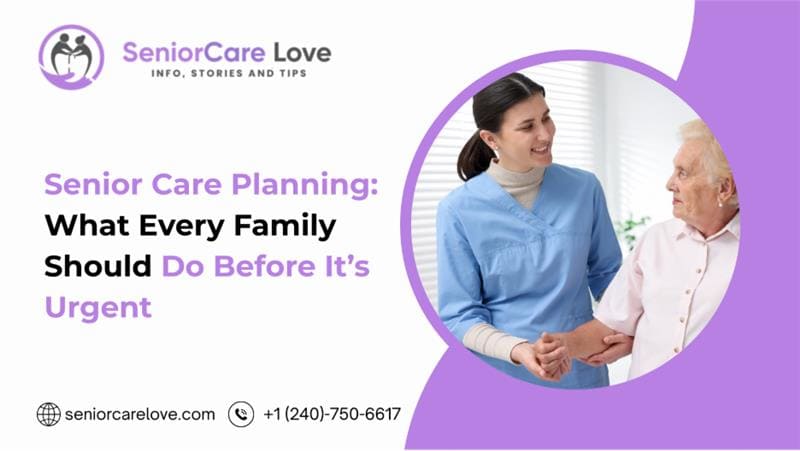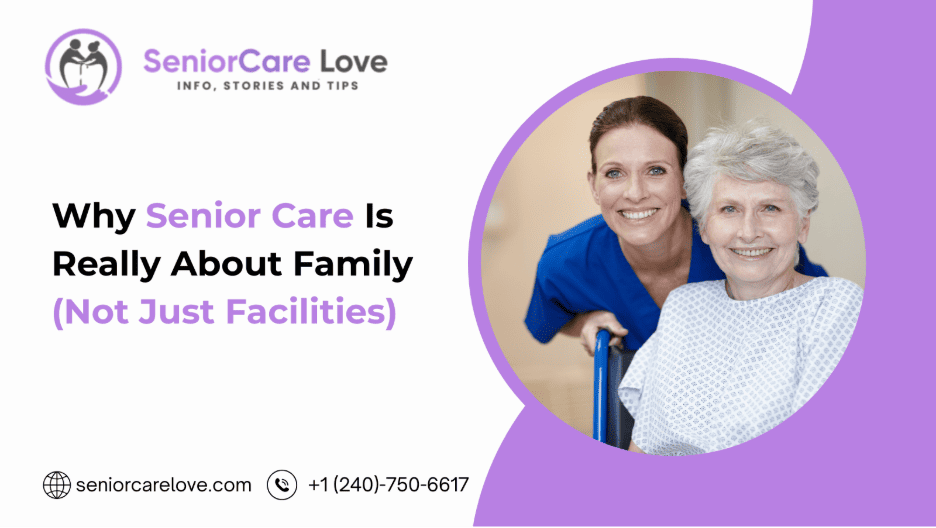Let’s start with the obvious: figuring out senior care in the Maryland–DC region feels like assembling Ikea furniture without the manual—while blindfolded—during a mild emotional breakdown.
You’ve got options. So many options. Assisted living, memory care, in-home support, rehab, respite, adult day programs… and let’s not forget the facilities that seem to have been decorated by someone who got a little too excited at a nautical-themed garage sale. (Why so many fake lighthouses?)
Then, just when your search history starts to include phrases like “what does Level 2 care mean and why does it cost more than my mortgage?”—someone tells you about senior care advisors.
Ah, yes. The magical unicorns of the eldercare world. Here’s how they work—and why they might just be your new favorite person (besides Grandma, obviously).
1. They Translate Senior Care Gibberish into Actual English
Senior care terminology is its own dialect—somewhere between healthcare legalese and customer service euphemism.
A senior care advisor knows how to translate this circus of confusing buzzwords into real, human language. They’ll walk you through:
- “ALF with memory care overlay” = A place for seniors with mild memory loss that doesn’t require full-on lockdown
- “Aging-in-place capable” = You won’t need to move again in six months when needs increase
- “Two-person transfer required” = Your loved one needs significant physical help, and not all communities are equipped
We once had a daughter from Bethesda call us in tears because a facility told her, “Your mom is an elopement risk.” She panicked—imagining her mom scaling fences at night. We calmly explained: it means she might wander off due to dementia. (Less Prison Break, more accidental Target run.)
Advisors explain these terms, so you don’t have to Google in the dark or make a decision based on a brochure with stock photos of improbably cheerful seniors.
2. They Personalize Every Recommendation (No Cookie Cutters Here)
This isn’t retail. You’re not shopping for a pair of jeans. You’re looking for a community—or a care plan—that can support someone you love through the next chapter of their life.
A good senior care advisor doesn’t just ask about budget and zip code. They ask about:
- Mobility and health conditions
- Religious and cultural preferences
- Personality quirks (yes, your mom’s obsession with Jeopardy counts)
- Emotional dynamics in the family (including the passive-aggressive sibling who “isn’t sure we need help yet”)
And they don’t stop there—they match you with places that actually fit.
3. They Know Maryland & DC Facilities Inside and Out
There are hundreds of communities in the DMV region. From upscale high-rises in Foggy Bottom to cozy family-owned homes in Bowie—and everything in between.
Care advisors are local. They know which ones:
- Just underwent management changes
- Had a health inspection last month
- Serve gluten-free meals that actually taste like food
- Have waiting lists so long they might as well be Hogwarts acceptance letters
That Google search you did? It gave you polished photos. Your advisor has been in the kitchen. They’ve smelled the hallways. They know which activities directors actually do the activities.
4. They Save You Time (and Sanity)
Let’s be honest—if you had time to tour 10 different facilities, understand state regulations, coordinate with social workers, negotiate fees, and still show up to work and pick up dry cleaning… you probably wouldn’t be here.
Senior care advisors take the pressure off by:
- Pre-screening communities
- Booking and coordinating tours
- Asking the right questions during site visits
- Following up on your behalf
You’re still in charge—but they help you skip the fluff and focus on the real contenders.
5. They Help Families Get on the Same Page (Without Throwing Punches)
If you’ve got more than one adult child involved in decision-making, chances are you’re not just juggling logistics—you’re mediating a multi-part mini-drama.
“She can live at home with more help!”
“She needs memory care!”
“I read this article on holistic goat therapy…”
Your advisor becomes Switzerland. Neutral. Calm. Full of data and wisdom. they present pros and cons. They respect emotions but bring clarity. They help unify families around shared goals—and sometimes, they break the tie with gentle grace (and snacks).
6. They Understand All the Financing Options
Cost is one of the biggest stressors in this process. Many families assume they can’t afford senior care, when in reality, they just haven’t had a full financial overview.
A senior care advisor can guide you through:
- Private pay vs. Medicaid vs. Medicare (yep, they’re all different)
- VA Aid & Attendance benefits
- Long-term care insurance
- Assisted Living subsidies
- Creative strategies (like bridging loans or selling life insurance policies)
They’re not financial advisors—but they know the local funding landscape well enough to give you real, actionable options (not just vague advice like “maybe start a GoFundMe?”).
7. They Stick Around After the Move
Contrary to what some believe, a good advisor doesn’t ghost you the second your loved one moves in.
They check in. they follow up. They troubleshoot if something goes wrong (because—let’s be honest—something always goes a little sideways the first week). Whether it’s helping your mom get a different roommate or following up about medication coordination—they’re your ongoing resource.
Case Study: The Johnson Family, Prince George’s County
The Johnsons were classic caregivers-in-crisis. Carol Johnson, a 74-year-old retired teacher, had been diagnosed with early-stage Alzheimer’s. Her daughter Monica, who lived in Capitol Heights, was managing care from a distance while juggling a full-time job, a toddler, and a partner who just “didn’t get it.”
Their tipping point? Carol wandered out during a neighborhood walk and was found three blocks away asking for directions to her old school. That evening, Monica Googled “memory care near me” and was immediately paralyzed by 47 open tabs.
They reached out to Senior Care Love (hi, that’s us).
What we did:
- Met with Monica to assess Carol’s care needs and preferences
- Provided three vetted memory care options nearby—each with availability and experience in Alzheimer’s support
- Attended one of the tours with her and helped ask tough questions about security, staff ratios, and cognitive programs
- Helped the family secure VA Aid & Attendance benefits (Carol’s late husband was a veteran)
- Checked in two weeks post-move when Carol’s transition hit a bump (she refused to eat—until someone offered French toast, her favorite)
Outcome:
Carol is thriving. She participates in music therapy and has befriended a fellow retired teacher who also hates bingo. Monica reports “the first full night of sleep in months.”
Final Thought
At Senior Care Love, we always say that caregiving isn’t a solo act—it’s a team sport with shifting rules and no official referee. When families try to do it alone, the burnout shows up fast—and so do the mistakes.
Senior care advisors aren’t just for emergencies. They’re guides. Advocates. Human cheat codes. They offer not only the expertise you don’t have—but the emotional grounding you need.
So if you’re standing at the crossroads of guilt, Google, and good intentions… take a breath. Then take a hand. You don’t have to figure this out by yourself.
Want a checklist for choosing the right senior care advisor in Maryland & DC?
Just holler—we’ll send one your way faster than you can say “What’s the difference between assisted living and skilled nursing again?”
Need help now? Contact us here —we love turning eldercare chaos into confident next steps.
FAQs
Q: Are senior care advisors only for assisted living placements?
Nope! Advisors help with a range of services including home care, adult day programs, memory care, independent living, respite care, and hospice navigation.
Q: Is there a cost for working with a senior care advisor?
In most cases, no. Advisors are typically paid by the communities they refer to. However, some may charge a fee for services like in-depth planning or legal consulting—always ask upfront.
Q: How long does it take to find the right placement?
It depends on urgency and availability. In emergency cases, advisors can sometimes place within 24–72 hours. For non-urgent moves, allow 2–4 weeks for the full process.
Q: Can an advisor help if my loved one is in the hospital or rehab?
Yes! Many families contact advisors during a discharge crisis. Advisors can coordinate transitions directly from hospitals or skilled nursing facilities.
Q: What if our family lives in different states?
No problem. Advisors often work with long-distance families and can coordinate virtual meetings, video tours, and regular updates to keep everyone looped in.

